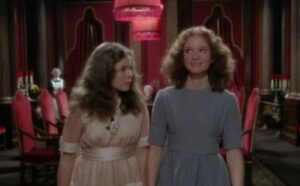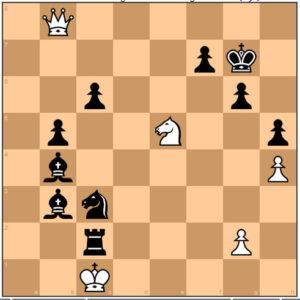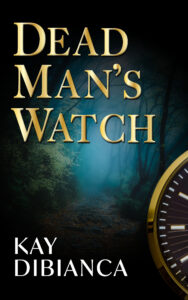“First sentences are doors to worlds.” — Ursula K. Le Guin
By PJ Parrish
Good morning, folks. We have today a submission from a contributing writer that shows some great promise. It comes to us with the genre designated as Christian teen romance. I’ll be back in a moment.
When Love Calls You Home
I broke the surface of the waters of Colten Springs and gasped for breath before swimming to shore. Jumping off the high-dive was the stupidest thing I’d ever done. Now I had a headache. When would I learn I couldn’t do normal things like everyone else. Not with my sinuses.
“She twirls, she sings, she swims!” Heather Gleason’s Canadian accent made her sound like a foreign news reporter on the scene. “What will she do next?” Her freckled face beamed down at me from her five-foot-eight frame as I trudged out of the lake, my brown hair clinging like cellophane to my head, shoulders, and back, my hands slinging water with every step.
“Your turn to try the high-dive,” I said, puffing as if I’d swum the English Channel. The matted hair on my cheeks felt yucky. I pushed it back and dried the droplets of water clinging to my eyelashes with the beach towel Heather threw at me.
“There’s not enough time. We’re leaving pretty soon, and you promised to show me that spring with the little waterfalls.”
“Oh, yeah. We better change clothes first. I’ll meet you at the paddle boats.”
The dressing area was uphill. Heather scrambled to the top while I followed like a little old lady. I had no zip, no zest, nothing. I wasn’t looking forward to paddling across the lake. But a promise was a promise.
Fifteen minutes later, Heather and I pulled our blue-and-white paddle boat to the bank’s edge and tied it to an old stump about three hundred yards from where the Lindell High School band buses were parked. Then we carefully climbed a grass-covered slope covered with dead leaves, spurts of grass, and dotted with native shrubbery. By the time we reached the top, I’d broken a sweat and felt weak as water, but Heather was depending on me. I kept going. Twenty paces took us inside the hundred-thousand-acre national forest that surrounded us. A weathered, wood-planked bridge with waist-high guardrails stood about five yards away.
Somehow, I made it. Leaning slightly over rails that were rough and splintery, we looked down into a gully filled with several layers of dead leaves, dried branches, and rust-colored pine straw. A gray rabbit scooted out from under the bridge, scattering a few brown leaves as he crossed the gully and leapt into the woods on the other side.
_______________________
First off, this is competently written. The writer has a good grasp of dialogue, description and basic craft. I like the interplay between the two characters. I like the contrast between the narrator’s physical reticence and the braver countenance of her friend. It reminds me a lot of the scenes about female friendship in the movie Julia. In the movie, Jane Fonda’s character “Lily” is shy, tentative and afraid of life in general. Her friend Julia, played by Vanessa Redgrave, is brash and fearless, always pushing Lily to be brave. The dynamic plays out in great flashback scenes of the two as girls, but develops into the movie’s theme when the adult Lily is asked by Julia to smuggle money out of Nazi Germany to save Jews.
This opening page of the narrator being goaded by Heather to be physically brave reminded me of a scene from Julia where Julia coaxes the terrified Lily to ford a river via a downed log. Alas, no clips. Just this one picture of the two girls, but it shows the shy Lily and the beaming Julia.

I like stories about friendship. But what I am not getting from our submission today is what many here at TKZ call “the telling details.” I’d like to see our writer try harder to use her grasp of description and dialogue to give us more character layers. More on that in a second.
Since we are in “Christian teen romance” genre here and not mystery or suspense, some of our usual “rules” might not apply here. For example, we always suggest of suspense stories that we need to get a sense that the main character’s world has been upended somehow. Jim Bell calls this “a disturbance.” It can be a death, a crime, or more subtly, a vague feeling of dread. But what happens when we are dealing with a romance? A romance is essentially an emotional journey, centered on your protagonist. So what elements do we need in the opening 400-500 words?
Well, it’s been four decades since I wrote romance, but I’ll try to give this a crack. Three things I think a romance (or any story needs) in the early pages:
Establish a connection with a main character. I wish I could remember where I read this so I could credit the writer but she suggested this exercise: Read the first five or six pages of your novel then stop and write down whatever you learned about that character. Not what you the writer know in your head; just what you put on the page. If you list only one or two things, you need to revise.
In this submission we learn what about the narrator?
- She’s female
- She’s a little tentative and perhaps lacks physical stamina.
- She has brown hair.
That’s it, folks. We don’t know her age or her name. We get only one detail about what she looks like. Now what do we know about her friend?
- She’s female
- Her name is Heather.
- She’s Canadian
- She’s five-eight
- She has freckles.
- She’s physically brave
Do you see the issue here? Heather is far more vivid than the unnamed narrator. Now, I recognize that when you are in first person point of view, it’s hard to insert descriptions etc. of your narrator. (egad, don’t resort to having your heroine look in a mirror and tell us what she sees!) And our narrator is, by nature, not flashy like Heather. But you have to find ways to make her come alive in the readers’ imagination. You can easily slip her name into Heather’s dialogue. You can find a way, via her thoughts to tell us her age, where she lives, how long she’s known Heather, etc. Always look for ways to insert telling details in your narration.
But here’s something the writer did really well. One way to illuminate character is to contrast it with someone else’s. By making Heather so ballsy and out-there, it allows the writer to show us (rather than tell us!) that the other girl is rather meek and cautious. The writer could have written something bad like this:
I had always been timid, afraid to do even the smallest physical thing. And I had been sickly since birth, barely able to climb a small hill.
Instead, we learn this through her actions. Good job there.
Establish tension. Something must grab the reader’s attention immediately. This can be an unusual use of language, a unique voice, great description (although not too much too early), establishment of a mood.
Or maybe one great opening line. Here’s one from the YA novel Aristotle and Dante Discover the Secrets of the Universe by Benjamin Alire Sáenz. (A young friend gave me this book and I am enjoying it. Well, as much as I can, as it transports me back to the zits and awful zeitgeist of my teenage years.
The problem with my life is that it was someone’s else’s idea.
Why does that work? Great voice, for starters. The story is about teenage first loves and self-discovery. This line feels bleak but once the story gets moving, it’s uplifting.
Although I really like the opening of this submission with the character jumping off the high drive (It’s action! It’s symbolism!) I don’t feel “grabbed” yet by this submission. As I said, the friendship interplay is interesting, but I am really hoping something is going to happen pretty soon.
Establish your setting. I don’t know where we are in this submission. Outside of “Colten Springs” there is no clue. Remember: You’re asking the reader to enter a conjured world, so try to work in these elements: Geographic location. I get that we are in woods/lake but is it rural South? Upstate New York? Oregon? You mention a “dressing area” — what is this exactly? Are we at a park because I had envisioned a rural swimming hole location. And is the “high dive” off a cliff or a diving board? Again, be specific in your details. Time of year (They’re swimming so I’m guessing summer? Can you slip in a telling detail to ground me?) And always SHOW this through your narrator’s senses and experience.
Okay, before I go to a line edit, one last thing. Living up in northern Michigan, you’d think I’d have a frim grasp of what a “Canadian accent” sounds like. But outside of a few obvious things — like saying “aboot” instead of “about,” I’m kinda clueless. So telling me your character has a Canadian accent isn’t helpful. Can you find a way to show me? I don’t mean you should resort to trying to duplicate a dialect. That gets annoying to readers fast. But find a way to suggest it via your dialogue and thoughts. Something like:
I had known Heather for a year but at times the way she talked could still make me giggle. “It’s about four.” Came out “It’s aboot four.” Until I met her, I never knew Canadians had an accent. Living all my XX years in Colton Springs, Kentucky, I had never even met a foreigner.
See what this also does? It adds character layers to your girls. You can sneak in her age, and where she lives. (Important things to reveal as early as you can in your story). If she lives in the South, you can have even more fun with the accent thing, especially if your main character has one herself or maybe has never been exposed to “foreigners.” If the accent is worth mentioning, make it mean something. Make your details work harder.
Now some quick comments in line edits.
When Love Calls You Home I like your title. It mean several things and has emotion
I broke the surface of the waters of Colten Springs and gasped for breath before swimming to shore. Jumping off the high-dive I am a little confused. You said they were swimming in Colten Springs but is there a diving board? Clarify your setting. was the stupidest thing I’d ever done. Now I had a headache. When would I learn I couldn’t do normal things like everyone else. Not with my sinuses.
“She twirls, she sings, she swims! What will Connie Grant do next?” I’d set this dialogue off by itself. And here is where you can tell us your protag’s name.
Heather Gleason’s Canadian accent made her sound like a foreign news reporter on the scene. See comments about/aboot accents. And what does a foreign news reporter sound like? “What will she do next?” Her freckled face beamed down at me from her five-foot-eight frame as I trudged out of the lake, my brown hair clinging like cellophane to my head, shoulders, and back, my hands slinging water with every step.
“Your turn to try the high-dive,” I said, puffing as if I’d swum the English Channel.
Heather tossed me a towel. I dried my face but my matted hair clung to my shoulders and back like wet cellophane. Open the graph with a physical motion — Heather and the towel. The matted hair on my cheeks felt yucky. I pushed it back and dried the droplets of water clinging to my eyelashes with the beach towel Heather threw at me.
“There’s not enough time,” Heather said. We’re leaving pretty soon, and you promised to show me that spring with the little waterfalls.” So we ARE in a woodsy park area somewhere? Again, here is where you could slip in details. Never let a chance go by to illuminate character. And maybe add some tension, intrigue, suspense or dollop of backstory. Something like:
The waterfall had always been my secret place. It was where I hid when mom started in on me. I wasn’t sure if I was ready to share it with anyone. Even Heather.
“Oh, yeah,” I said. We better change clothes first. I’ll meet you at the paddle boats.” So is she going to show her the waterfall? Unclear.
The dressing area was uphill. Now this suggests to me a park with a cabana changing room? Don’t be afraid to slow down just a tad and ground us better in your setting. Heather scrambled to the top while I followed like a little old lady. I had no zip, no zest, nothing. I wasn’t looking forward to paddling across the lake. But a promise was a promise.
Fifteen minutes later, If you’re going to use the paddleboats, have it mean something in the scene. Maybe you use it for a conversation that moves the plot forward. Otherwise, I would take them straight to the parking lot. Heather and I pulled our blue-and-white paddle boat to the bank’s edge and tied it to an old stump about three hundred yards from where the Lindell High School band buses were parked. Again, I am a little confused about this setting. Apparently, this is a school outing? Buses are waiting in the parking lot. But I was visualizing a more rural swimming hole locale. Then we carefully Why? Is it steep, rock-strewn? Your woods setting is good! But use it to amplify whatever is going on in your character’s head/emotions climbed a grass-covered slope covered with dead leaves, spurts of grass, and dotted with native shrubbery. Huckleberry bushes? Lady ferns? Michigan holly? Be specific! Don’t let a chance go by to use TELLING DETAILS. By the time we reached the top, I’d broken a sweat and felt weak as water, but Heather was depending on me. I kept going.
New graph needed here I think. Twenty paces took us inside the hundred-thousand-acre national forest Huron National Forest (Mich)? Sierra National Forest (Cal)? White Mountain National Forest (New Hamp)? that surrounded us. Okay, they’ve just climbed a big hill of some kind and are apparently now looking DOWN on a forest? What do they see? What is your character thinking? Why are you taking us there? Make the setting SAY SOMETHING ABOUT CHARACTER or MAKE IT RELATE TO PLOT. A weathered, wood-planked bridge with waist-high guardrails stood about five yards away.
Somehow, I made it. We went over to the bridge and I leaned on it, still trying to catch my breath. I looked down Leaning slightly over rails that were rough and splintery, we looked down into a gully filled with several layers of dead leaves, dried branches, and rust-colored pine straw. How deep? A gray rabbit scooted out from under the bridge, scattering a few brown leaves as he crossed the gully and it disappeared into the woods on the other side.
One last note. I like this submission and feel it has great potential. Because I sense that the relationship between Heather and unnamed girl is important. But I am hoping that the writer has a good reason for taking us readers on a hike up the hill into the forest and to this bridge. Something must happen soon. Or I am not sure we’re going to be willing to go any further down the trail.
Thank you, dear writer, for submitting. I hope you don’t find this discouraging. Given some well-placed details, character layers, and a more focused sense of what you are trying to accomplish in this scene, you’re on the right track.










 You just landed a starring role in the remake of one of your favorite movies.
You just landed a starring role in the remake of one of your favorite movies. 




